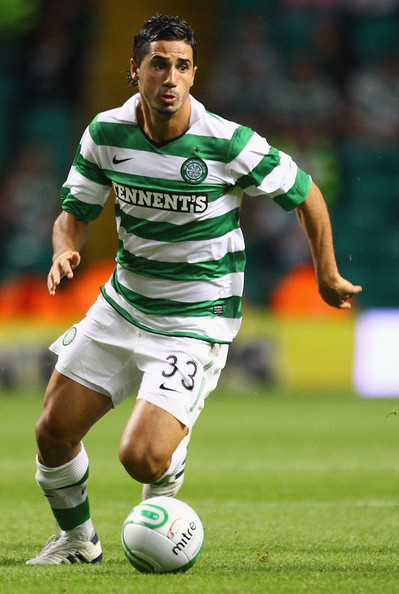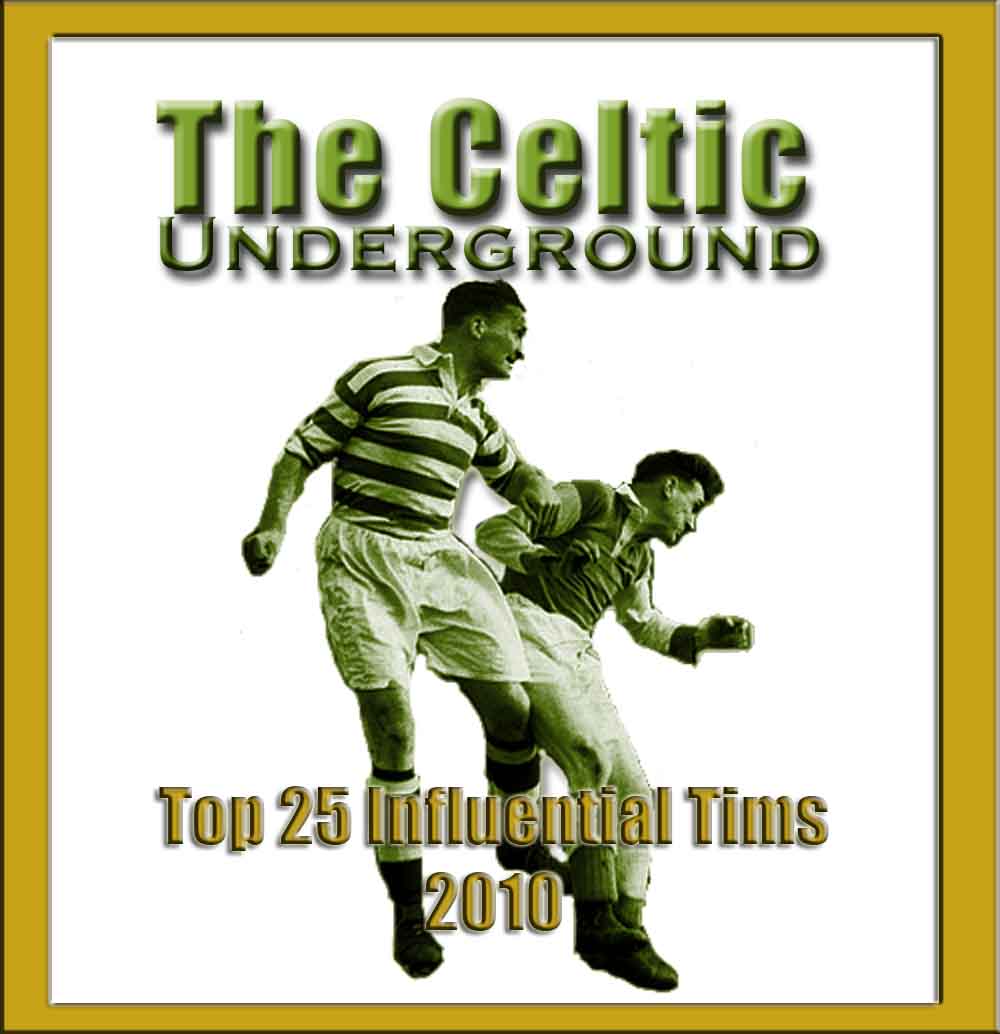Despite Celtic’s early exit from Europe in his first season, Nakamura brought some wonderful footballing ability to Celtic. In doing so Celtic pronounced their intention to exploit Nakamura’s standing as a Japanese footballer with the launch of a Japanese version of the Celtic website. Peter Lawwell had previously informed the north American markets that Celtic were a ‘franchised story’. This franchised story was now going to be exported to the far East via the website.
The site carried news stories and lots of updates about Nakamura at Celtic. At the time the Tokyo CSC commented on its launch and citing hundreds of registrations to the new site. Coupled with this Skyperfectv announced coverage of SPL games with the obvious emphasis on Nakamura.
Nakamura provided 4 years of service to Celtic and many sublime moments in both the SPL and Europe. During those 4 years Celtic had more than enough opportunities to develop partnerships and links in the far East on the back of Nakamura’s name. Presumably the original plan was to gradually elevate Celtic’s name so that a new group of fans could continue to follow Celtic beyond Nakamura’s time at the club. Clinking on the following link demonstrates where Celtic ended up following Nakamura’s departure.
Clearly this is a redundant link which more than demonstrates an inability to develop the opportunity which Celtic claimed existed. Indeed, no sooner had Nakamura departed Celtic, Skyperfectv announced their plans to no longer show SPL football in Japan. Surely though, before this occurred, Celtic should have been diligently building links to these supposed new markets? Or perhaps they just weren’t there?
Nevertheless Peter Lawwell made specific reference to the Japanese market in the 2006 Annual Report and signalled that it would be ‘an important focus of attention for 2006/07’. By the time the 2007 Report was published it contained just a passing reference to Japan lost among the seemingly scattergun sponsorship portfolio which ranged from a Polish airline through to some dodgy property village in Spain. Moving on to 2008 the Annual Report contained a wonderful cover picture of Nakamura celebrating one of his trademark free kicks. However flicking the pages the Japanese market spin had all but dried up.
Despite the apparent lack of tangible outputs the club announced through that publication that it was seeking to appoint a Director of International Development, the first job of its kind in British football.
Jason Hughes was appointed to the job in July 2008. He outlined his role at the time citing the need to build on where Celtic were strongest which he claimed as being North America and the Far East. Hughes went further in saying, “The first thing I’m looking to do is draw up a business plan: What works for Celtic and could it work even better? How do we spread the brand further using, for example, new media and other tools?
“We hope to develop existing relationships, create new ones and build circle of relationships that is good for the supporters, our partners and, ultimately, the team.
“We hope to engage existing passions. I’m not so sure we’re competing with clubs such as Man United and Barcelona in reaching out to new corners of the world.
“It’s a good thing others are also in the market because we can develop an even better understanding of what works.
“I’ve a clear vision from speaking with Peter about what the club is trying to achieve and we share the same goals for Celtic.
“This is the right strategy to follow and we’re looking to put the flesh on the bones of our initial dialogue.”
You would have thought with such enthusiasm and intention that the objectives of an international development business plan would have figured prominently in the 2009 Annual Report. Nothing of the sort was to be found in that document and the club’s inactions speak far louder than the declining trumpets accompanying the supposed new global markets..
In similar fashion to the Japanese website Celtic developed Chinese and Korean versions of their website on the back of the signings of Ki Sung-Yueng and Zheng Zhi. Celtic again clearly thought that there were new markets here in which commercial benefits would accrue for the club. Zheng Zhi’s arrival was not the first Chinese player. Du Wei had arrived in the same season as Nakamura with a wave of interest and lots of talk about commercial opportunities back in his homeland.
Of course the Du Wei deal was dressed up as a long term contract but in reality it was an extended trial which came to an abrupt halt after an excuciating 45 minute debut for the player in the cup defeat to Clyde. Du Wei’s bags were packed days later and thankfully for him he has gone on to have a decent career back in China. his short stay and disastrous ending were highly unlikely to turn Chinese commercial heads Celtic’s way.
Perhaps Celtic thought the arrival of Zheng Zhi would herald a greater opportunity to focus on one of the world’s largest markets. Unfortunately another click on the Chinese version of the Celtic website and we see that the last news story covered there is Zheng Zhi’s signing.
http://www.celticfc.net/news/ChineseNews.aspx
The arrival of Ki was given perhaps the greatest exposure of all these signings. Sensing the commercial opportunities Peter Lawwell travelled to Korea and conducted a press conference there to announce Ki’s signing. It was covered extensively as Ki was seen as one of the burgeoning stars of Korean football.
Ki’s arrival at Celtic was protracted however due to the agreement that he commit to the end of the Korean season before joining Celtic. By the time Ki arrived in December 2009 with a work permit Celtic were toiling in a season of managerial change and little success. Since then Ki’s playing time has been limited and again the heralded focus on the commercial opportunities seem to have been abandoned by Celtic. The Korean version of the Celtic website mimics the Chinese and Japanese versions.
http://www.celticfc.net/korea/default.aspx
The ‘latest news’ item carries an image and words on Robbie Keane’s signing in January 2010.
Looking at these links only serves to emphasise the notion that the grand plan to successfully break into new commercial markets and welcome new fans from the other side of the world is just simply something that Celtic cannot deliver on.
Indeed the warning signs were spelt out to Celtic in a Herald article in February this year. Various Korean businessmen and expats identified the effort required to make successful partnerships and commercial activities work. They stressed that these ventures could not be delivered in an overnight whirlwind of camera flashbulbs and happy faces shaking hands. A spokesman for IB Sports, a sports marketing and media company who own Ki’s image rights, claimed there were half a dozen or so sponsorship deals in the pipeline but none of these appear to have come to fruition. Equally the spokesman indicated that no merchandising plan had been developed because it was regarded as premature. It will be even harder now to sell Celtic merchandise given Korean TV’s decision not to show SPL football and Ki’s limited appearances in the Hoops.
As the last two seasons have been played out to declining attendances at Celtic Park and large chunks of disgruntlement it’s no surprise that limited resources have been deployed to concentrate on selling season books and encouraging supporters back to Parkhead.
The redundant Celtic websites designed to look eastwards bear testimony to a failure to properly identify who might be interested in Celtic and for what reasons. Proper research in to those areas needed to be undertaken and a clear understanding of the time and effort to build up those commercial and supporter links. Seemingly none of this happened. So what if Ki suddenly bursts into the first team on a regular basis? Will Celtic suddenly revisit their Korean website and start updating it? Is there any sustainable interest in Celtic out there in Korea?
One wonders just how much time and effort was wasted on these ventures. What, if any, benefits accrued on a short term basis never mind the supposed long term penetration into new revenue streams and a new interest in Celtic in the far East.
Where next for Celtic’s self publicised international development aimed at the Far East and other overseas markets?





